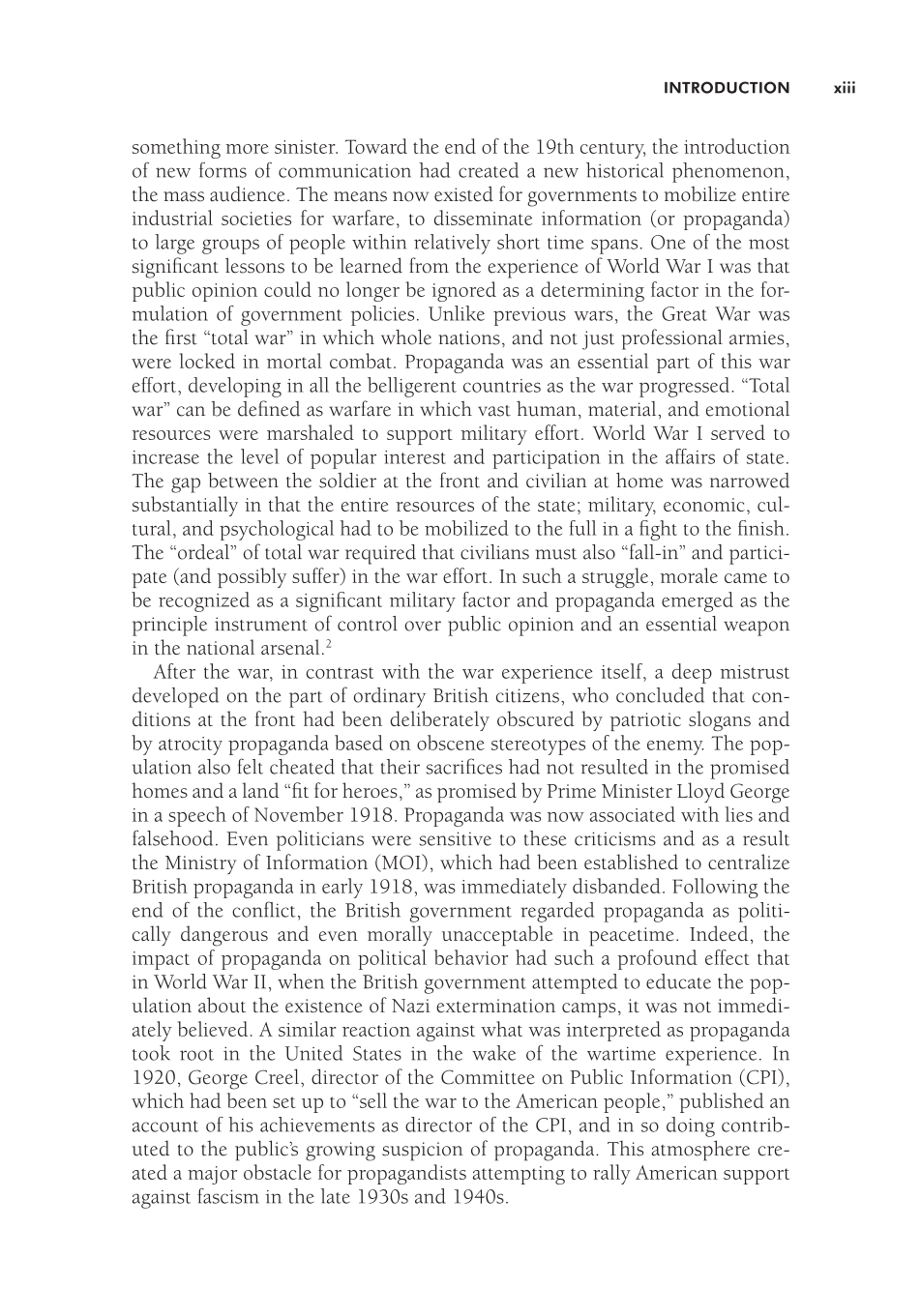Introduction xiii
something more sinister. Toward the end of the 19th century, the introduction
of new forms of communication had created a new historical phenomenon,
the mass audience. The means now existed for governments to mobilize entire
industrial societies for warfare, to disseminate information (or propaganda)
to large groups of people within relatively short time spans. One of the most
significant lessons to be learned from the experience of World War I was that
public opinion could no longer be ignored as a determining factor in the for-
mulation of government policies. Unlike previous wars, the Great War was
the first “total war” in which whole nations, and not just professional armies,
were locked in mortal combat. Propaganda was an essential part of this war
effort, developing in all the belligerent countries as the war progressed. “Total
war” can be defined as warfare in which vast human, material, and emotional
resources were marshaled to support military effort. World War I served to
increase the level of popular interest and participation in the affairs of state.
The gap between the soldier at the front and civilian at home was narrowed
substantially in that the entire resources of the state; military, economic, cul-
tural, and psychological had to be mobilized to the full in a fight to the finish.
The “ordeal” of total war required that civilians must also “fall-in” and partici-
pate (and possibly suffer) in the war effort. In such a struggle, morale came to
be recognized as a significant military factor and propaganda emerged as the
principle instrument of control over public opinion and an essential weapon
in the national arsenal.2
After the war, in contrast with the war experience itself, a deep mistrust
developed on the part of ordinary British citizens, who concluded that con-
ditions at the front had been deliberately obscured by patriotic slogans and
by atrocity propaganda based on obscene stereotypes of the enemy. The pop-
ulation also felt cheated that their sacrifices had not resulted in the promised
homes and a land “fit for heroes,” as promised by Prime Minister Lloyd George
in a speech of November 1918. Propaganda was now associated with lies and
falsehood. Even politicians were sensitive to these criticisms and as a result
the Ministry of Information (MOI), which had been established to centralize
British propaganda in early 1918, was immediately disbanded. Following the
end of the conflict, the British government regarded propaganda as politi-
cally dangerous and even morally unacceptable in peacetime. Indeed, the
impact of propaganda on political behavior had such a profound effect that
in World War II, when the British government attempted to educate the pop-
ulation about the existence of Nazi extermination camps, it was not immedi-
ately believed. A similar reaction against what was interpreted as propaganda
took root in the United States in the wake of the wartime experience. In
1920, George Creel, director of the Committee on Public Information (CPI),
which had been set up to “sell the war to the American people,” published an
account of his achievements as director of the CPI, and in so doing contrib-
uted to the public’s growing suspicion of propaganda. This atmosphere cre-
ated a major obstacle for propagandists attempting to rally American support
against fascism in the late 1930s and 1940s.






























































































































































































































